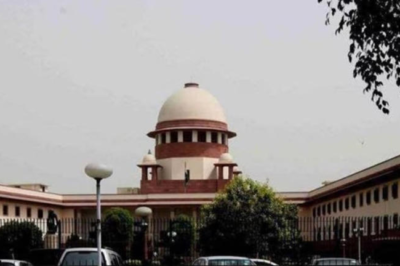
- Supreme Court rules remarks were in poor taste but not a criminal offence.
- Charges under Sections 298 and 504 IPC dropped, citing lack of intent to provoke violence.
- High Court ruling overturned, accused discharged from case.
What Happened?
The Supreme Court has discharged a man accused of hurting the religious sentiments of a government official by allegedly calling him ‘miyan-tiyan’ and ‘Pakistani’. While acknowledging that the remarks were inappropriate and distasteful, the court ruled they do not constitute an offence under Section 298 of the IPC (hurting religious feelings).
The case dates back to November 2020, when the accused, Hari Nandan Singh, allegedly used derogatory language against an Urdu translator in Bokaro after being dissatisfied with an RTI response. The translator filed a complaint, leading to an FIR and charges under multiple IPC sections, including intentional insult (504), criminal force against a public servant (353), and criminal intimidation (506).
SC Overturns Lower Court Rulings
- Singh had approached the Jharkhand High Court seeking to quash the case, but his petition was dismissed.
- He then escalated the matter to the Supreme Court, which ruled that the remarks did not amount to an offence and discharged him from the case.
- The SC also noted that no assault or use of force was established to justify charges under Section 353 IPC.
Why It Matters?
This ruling sets a precedent that offensive or distasteful language alone does not necessarily constitute a criminal offence unless it is accompanied by clear intent to incite violence or religious discord. While discouraging derogatory speech, the judgment emphasizes the need to balance legal consequences with free speech principles.









































Leave a Reply